
RAY BRADBURY WEEK: AUGUST 23, 2010
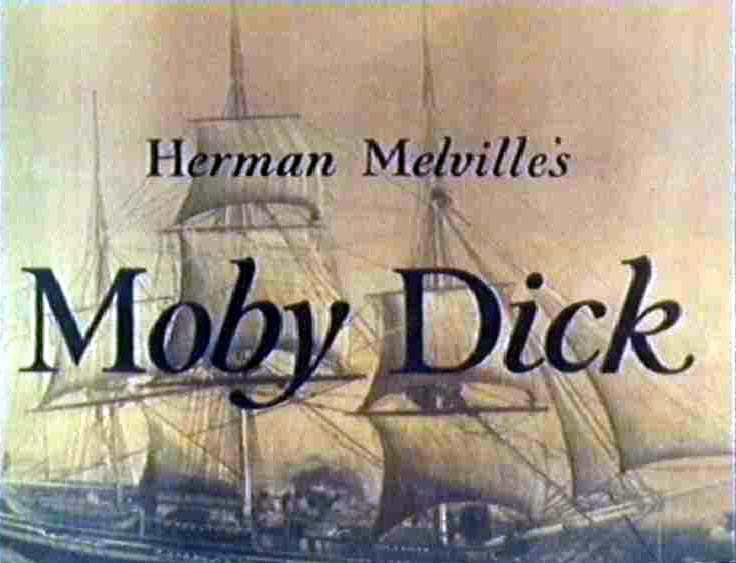
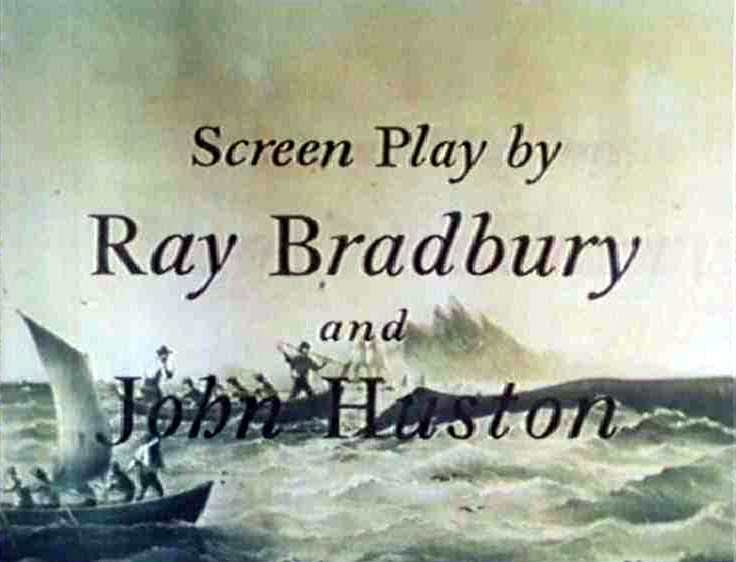
Christopher Funderburg
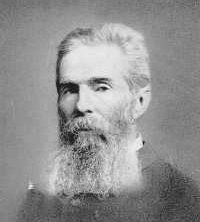 What folks seem to forget about Herman Melville's 1851 masterpiece Moby Dick is that it's a deeply strange work. There are two separate chapters devoted entirely to a description and discussion of the Sperm and Right whale's heads and a comparison of their capacities to the Heidelberg Tun. Most novels said to be unfilmable, like Ulysses or The Catcher in the Rye, rely on a distinct interiority, their narrative movement ensnared in their character's mental landscapes – their stories are about psychological states and tracking them as they develop, a tricky feat to represent onscreen – while Moby Dick features a notable lack of psychological interiority, especially in regards to its narrator, Ismael. It is a book where, for long stretches, literally nothing happens plot-wise, even in terms of the psychological landscape. Sections like the "whale's head" chapters have nothing to do with the narrative ontology of the book; their aim isn't to express something about any character's psychological state and they certainly don't move the plot forward. To accurately imitate Moby Dick in a film, one would need to unexpectedly (almost randomly) splice in a two-part documentary about the cranial capacity of the world's largest mammal. Despite its undisputed prestige as an American Literary Treasure, Moby Dick is an unclassifiable curio; for all its odd asides and documentary digressions, I would hesitate to even label it a novel at all. It is a deeply weird work even by the deeply weird standards of its sailor-turned-brilliant-novelist-turned-awful-poet-turned-postal-clerk author. "Lover of big game hunting and guy who clearly doesn’t think things through" John Huston was an unsurprising choice to direct Hollywood’s definitive attempt at filming the unfilmable tale of a whale, but the relentlessly square Ray Bradbury's involvement as a screenwriter is a pairing of writer and material that never fails to feel incredibly "off."
What folks seem to forget about Herman Melville's 1851 masterpiece Moby Dick is that it's a deeply strange work. There are two separate chapters devoted entirely to a description and discussion of the Sperm and Right whale's heads and a comparison of their capacities to the Heidelberg Tun. Most novels said to be unfilmable, like Ulysses or The Catcher in the Rye, rely on a distinct interiority, their narrative movement ensnared in their character's mental landscapes – their stories are about psychological states and tracking them as they develop, a tricky feat to represent onscreen – while Moby Dick features a notable lack of psychological interiority, especially in regards to its narrator, Ismael. It is a book where, for long stretches, literally nothing happens plot-wise, even in terms of the psychological landscape. Sections like the "whale's head" chapters have nothing to do with the narrative ontology of the book; their aim isn't to express something about any character's psychological state and they certainly don't move the plot forward. To accurately imitate Moby Dick in a film, one would need to unexpectedly (almost randomly) splice in a two-part documentary about the cranial capacity of the world's largest mammal. Despite its undisputed prestige as an American Literary Treasure, Moby Dick is an unclassifiable curio; for all its odd asides and documentary digressions, I would hesitate to even label it a novel at all. It is a deeply weird work even by the deeply weird standards of its sailor-turned-brilliant-novelist-turned-awful-poet-turned-postal-clerk author. "Lover of big game hunting and guy who clearly doesn’t think things through" John Huston was an unsurprising choice to direct Hollywood’s definitive attempt at filming the unfilmable tale of a whale, but the relentlessly square Ray Bradbury's involvement as a screenwriter is a pairing of writer and material that never fails to feel incredibly "off."
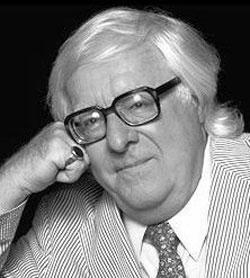 Aside from their shared status as writers of American Literary Treasures and dudes unfailing inflicted on high school students, the raging, curmudgeonly, set-to-self-destruct Melville and the affable, level-headed Bradbury are polar opposites. Bradbury's claim to fame is legitimizing the science-fiction genre: Fahrenheit 451 and The Martian Chronicles are tasteful, thoughtful works that could be read without embarrassment or fear of encountering sentences like "'Behold my power!' bellowed Zarnak at the Cromulens" or extended passages about nubile slave girls on lurid alien planets. Like Arthur C. Clarke and Isaac Asimov after him, he's responsible for classing things up a bit and laying to rest the dreary, impenetrably bad, paid-by-the-word writing style of E.E. Smith and Edgar Rice Burroughs - that is, he wrote science fiction novels that were regular novels. On the other end of the spectrum, Melville (among other things) took the popular "high seas adventure" genre and pushed its boundaries in perverse, frequently reader-antagonizing directions. Even an early work generally viewed as a more or less "regular" genre adventure like Typee: A Peep at Polynesian Life contains willfully laborious passages like the sequence detailing the heroes' painstaking ascent to the top of a waterfall that then glosses over the "thrilling" things that happen once they reach their destination. Moby Dick blew up the entire high seas adventure genre by being a work so singular, unpredictable and strange that no one but Melville possibly could've written it. Bradbury specialized in palatable conformity, he worked to make his novels feel like "real" books. It was work that needed to be done and was just as ground-breaking as Melville's apostasies – the difference is that Bradbury shattered the barriers of snootiness and led a movement of legitimate sci-fi, while Melville recklessly flew off to his own planet.
Aside from their shared status as writers of American Literary Treasures and dudes unfailing inflicted on high school students, the raging, curmudgeonly, set-to-self-destruct Melville and the affable, level-headed Bradbury are polar opposites. Bradbury's claim to fame is legitimizing the science-fiction genre: Fahrenheit 451 and The Martian Chronicles are tasteful, thoughtful works that could be read without embarrassment or fear of encountering sentences like "'Behold my power!' bellowed Zarnak at the Cromulens" or extended passages about nubile slave girls on lurid alien planets. Like Arthur C. Clarke and Isaac Asimov after him, he's responsible for classing things up a bit and laying to rest the dreary, impenetrably bad, paid-by-the-word writing style of E.E. Smith and Edgar Rice Burroughs - that is, he wrote science fiction novels that were regular novels. On the other end of the spectrum, Melville (among other things) took the popular "high seas adventure" genre and pushed its boundaries in perverse, frequently reader-antagonizing directions. Even an early work generally viewed as a more or less "regular" genre adventure like Typee: A Peep at Polynesian Life contains willfully laborious passages like the sequence detailing the heroes' painstaking ascent to the top of a waterfall that then glosses over the "thrilling" things that happen once they reach their destination. Moby Dick blew up the entire high seas adventure genre by being a work so singular, unpredictable and strange that no one but Melville possibly could've written it. Bradbury specialized in palatable conformity, he worked to make his novels feel like "real" books. It was work that needed to be done and was just as ground-breaking as Melville's apostasies – the difference is that Bradbury shattered the barriers of snootiness and led a movement of legitimate sci-fi, while Melville recklessly flew off to his own planet.
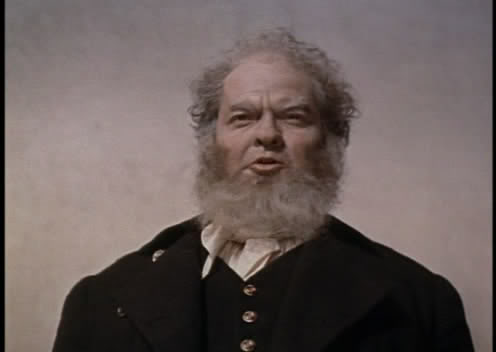 Disappointingly, but inevitably, Bradbury’s script for Moby Dick doesn’t even attempt to recreate any of what makes the book such an original work. The film sticks more or less to the plot of the book and, in that regard, stays fairly faithful to the narrative action as outlined by Melville. The entire problem, of course, is that narrative action comprises only a fraction of Melville’s book – the movie barely even attempts to touch on Melville’s circuitous, cynical, ironic ideas about racial identity, how religion and morality functions in a practical sense, the sheer stupditiy of Thoreau's love of nature and (sadly) the whale's head and its similarities to a 58,000 gallon wine vat in the basement of a German castle. All of the most famous scenes are included, but the result still feels thin – it's a whale without blubber: the skin and bones and brushy, broom-like teeth are there, just absent the fatty excess that makes the animal valuable. Orson Welles shows up as Father Mapple to do the famous bit of preaching and, as with The Trial, he seems to not have any understanding of the source material, instead seizing on it as a really great opportunity for a lot of laughable grand-standing. Bradbury keep Mapple’s speech pretty much verbatim, but Welles plays it wrong: in this way and others, Moby Dick is not a very good movie, but I don't think much of it can be blamed on Bradbury. He errs on the side of doing things the way they were done in the book, but Huston's take is so faulty that I would bet real money that he never read the damned thing. A notorious carouser, imbiber and the quintessential rowdy Hollywood partier, Huston has a long list of films developed from literary masterpieces that I will always find it hard to believe he actually read. Rather, I imagine he's something like Humphrey Bogart in In a Lonely Place paying coat-checks girls who have read the book to describe it to him. The coat-check girl in this instance being Ray Bradbury. Like most folks who don't really know Melville's Moby Dick, Huston positions Captain Ahab as the main character and treats him like a heroic, impassioned, larger-than-life striver – he even cast the square-jawed, preternaturally upstanding, handsome Gregory Peck in the role. That's not Bradbury's fault and I can't imagine how his script could've been altered to avoid the problem: as with most of the missteps, the problems with fidelity are in the direction and acting more than they're ever from the script.
Disappointingly, but inevitably, Bradbury’s script for Moby Dick doesn’t even attempt to recreate any of what makes the book such an original work. The film sticks more or less to the plot of the book and, in that regard, stays fairly faithful to the narrative action as outlined by Melville. The entire problem, of course, is that narrative action comprises only a fraction of Melville’s book – the movie barely even attempts to touch on Melville’s circuitous, cynical, ironic ideas about racial identity, how religion and morality functions in a practical sense, the sheer stupditiy of Thoreau's love of nature and (sadly) the whale's head and its similarities to a 58,000 gallon wine vat in the basement of a German castle. All of the most famous scenes are included, but the result still feels thin – it's a whale without blubber: the skin and bones and brushy, broom-like teeth are there, just absent the fatty excess that makes the animal valuable. Orson Welles shows up as Father Mapple to do the famous bit of preaching and, as with The Trial, he seems to not have any understanding of the source material, instead seizing on it as a really great opportunity for a lot of laughable grand-standing. Bradbury keep Mapple’s speech pretty much verbatim, but Welles plays it wrong: in this way and others, Moby Dick is not a very good movie, but I don't think much of it can be blamed on Bradbury. He errs on the side of doing things the way they were done in the book, but Huston's take is so faulty that I would bet real money that he never read the damned thing. A notorious carouser, imbiber and the quintessential rowdy Hollywood partier, Huston has a long list of films developed from literary masterpieces that I will always find it hard to believe he actually read. Rather, I imagine he's something like Humphrey Bogart in In a Lonely Place paying coat-checks girls who have read the book to describe it to him. The coat-check girl in this instance being Ray Bradbury. Like most folks who don't really know Melville's Moby Dick, Huston positions Captain Ahab as the main character and treats him like a heroic, impassioned, larger-than-life striver – he even cast the square-jawed, preternaturally upstanding, handsome Gregory Peck in the role. That's not Bradbury's fault and I can't imagine how his script could've been altered to avoid the problem: as with most of the missteps, the problems with fidelity are in the direction and acting more than they're ever from the script.
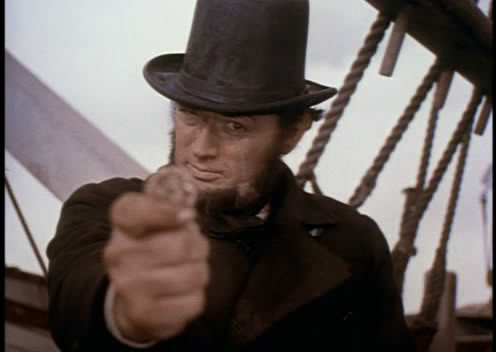 In the book, Ahab plays like a morally, psychologically and physically gnarled creature from the great beyond; he's an angel and a demon consumed with an insane fire which Melville calls "monomania." Like the Butcher hunting the snark, he has only one thought and that thought is "Moby Dick." Sure, his quest is the book's primary narrative propeller, but he's not the main character by any stretch – he's barely in it. In the book, he's more or less a scene-stealer who shows up every now and then and completely commands our attention. He's like William Hurt in A History of Violence or Jean Reno in La Femme Nikita,* a minor character who takes over the story with his every appearance. But Ismael and, possibly even more so, Queequeg are the real main characters of the book. Ismael alone survived to tell the tale, so everything in the book is filtered through his lens and he focuses much of his attention on his good buddy, the charming cannibal Queequeg. The book's perspective is tricky because while we are basically experiencing everything through Ismael, he's kind of a blank. Think of him as the anti-"unreliable narrator," his personality and subjectivity are so subdued that you have no reason to doubt anything he says
to a degree which is almost a little suspicious. One could argue that the "whale’s head" chapter tells the reader about the psychological state of the Ismael (as he's ostensibly the one "telling" us about the beast's gourd), but the dry, personality-free style tells us no more about him than a high school text book tells the reader something about its author; after all, Ismael's specialty is not telling us anything about Ismael. He does very little in the book aside from witness the other characters and not die. Neither Huston nor Bradbury comes up with a good way to deal with his passivity, so the immortal Richard Basehart's portrayal consists of little more than him hanging around. Queequeg gets it even worse: in the book he rivals in importance even Ahab; in the film he's relegated to an after-thought in a large cast of underdeveloped characters. It makes sense that Bradbury's script would focus on Ahab and his hunt for the great white whale, but again his take on the material shores away anything distinct about the original text. Ahab's story of being consumed with a desire for revenge is far more rote than Queequeg's tale of a Polynesian Prince who isn't sure if he's now the King of his people and his coffin-making, harpoon-twirling, tattoo-receiving idiosyncrasies.
In the book, Ahab plays like a morally, psychologically and physically gnarled creature from the great beyond; he's an angel and a demon consumed with an insane fire which Melville calls "monomania." Like the Butcher hunting the snark, he has only one thought and that thought is "Moby Dick." Sure, his quest is the book's primary narrative propeller, but he's not the main character by any stretch – he's barely in it. In the book, he's more or less a scene-stealer who shows up every now and then and completely commands our attention. He's like William Hurt in A History of Violence or Jean Reno in La Femme Nikita,* a minor character who takes over the story with his every appearance. But Ismael and, possibly even more so, Queequeg are the real main characters of the book. Ismael alone survived to tell the tale, so everything in the book is filtered through his lens and he focuses much of his attention on his good buddy, the charming cannibal Queequeg. The book's perspective is tricky because while we are basically experiencing everything through Ismael, he's kind of a blank. Think of him as the anti-"unreliable narrator," his personality and subjectivity are so subdued that you have no reason to doubt anything he says
to a degree which is almost a little suspicious. One could argue that the "whale’s head" chapter tells the reader about the psychological state of the Ismael (as he's ostensibly the one "telling" us about the beast's gourd), but the dry, personality-free style tells us no more about him than a high school text book tells the reader something about its author; after all, Ismael's specialty is not telling us anything about Ismael. He does very little in the book aside from witness the other characters and not die. Neither Huston nor Bradbury comes up with a good way to deal with his passivity, so the immortal Richard Basehart's portrayal consists of little more than him hanging around. Queequeg gets it even worse: in the book he rivals in importance even Ahab; in the film he's relegated to an after-thought in a large cast of underdeveloped characters. It makes sense that Bradbury's script would focus on Ahab and his hunt for the great white whale, but again his take on the material shores away anything distinct about the original text. Ahab's story of being consumed with a desire for revenge is far more rote than Queequeg's tale of a Polynesian Prince who isn't sure if he's now the King of his people and his coffin-making, harpoon-twirling, tattoo-receiving idiosyncrasies.
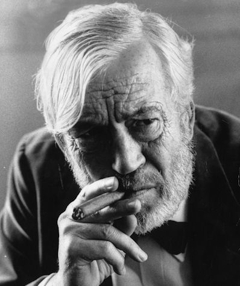 The essential problem of filming the unfilmable is never addressed by Bradbury and, by erring on the side of narrative fidelity, he actually maneuvers the film farther away from its goal (assuming its goal was to capture the spirit and originality of Melville's work.) The failures of Bradbury's script mirror his successes as a novelist: he makes an unpalatable work more palatable by stream-lining the digressions (by focusing on the plot), discarding the hard to digest bits (no whale's head for the film) and playing up the material that could easily be dominated by show-boating Hollywood actors like Orson Welles and Gregory Peck. The verbose and often puerile science-fiction genre was in need of Bradbury's natural talent for creating accessibly intelligent, tasteful writing. Without Bradbury, we'd live in a world without many of the greatest, most popular films and novels of all time, everything from Stalker to The Matrix finding its root in the soil Bradbury plowed. But, unfortunately, he's the wrong man for the job with Moby Dick. Melville's spark derives from the thorny, difficult, even off-putting elements of his work – he frequently engages his audience in an impassioned, even rude debate of his themes and subjects, but it's often a debate a lot people wouldn't be interested in even having. He's simultaneously bitter and ironic but humanistic and hopeful. He's cynicism redeemed by honesty: The Great Art of Telling the Truth as he called it. Bradbury's caught between a rock (Melville's stylistic intransigence) and a hard place (John Huston's flighty, devil-may-care so long as it's a Hollywood hit approach) and it's hard to imagine what he could have done differently, considering the circumstances. There's something noble in his choice to invent very little and stick as closely to the story as possible, it would have been worse if they added some wacky comic relief or decided to have Captain Ahab be hunting an elephant. Ultimately, that's the best that can be said of Bradbury's take on Moby Dick: I suppose it could have been worse. Sometimes, faced with such a thankless task, we really should be glad it didn't turn out worse.
The essential problem of filming the unfilmable is never addressed by Bradbury and, by erring on the side of narrative fidelity, he actually maneuvers the film farther away from its goal (assuming its goal was to capture the spirit and originality of Melville's work.) The failures of Bradbury's script mirror his successes as a novelist: he makes an unpalatable work more palatable by stream-lining the digressions (by focusing on the plot), discarding the hard to digest bits (no whale's head for the film) and playing up the material that could easily be dominated by show-boating Hollywood actors like Orson Welles and Gregory Peck. The verbose and often puerile science-fiction genre was in need of Bradbury's natural talent for creating accessibly intelligent, tasteful writing. Without Bradbury, we'd live in a world without many of the greatest, most popular films and novels of all time, everything from Stalker to The Matrix finding its root in the soil Bradbury plowed. But, unfortunately, he's the wrong man for the job with Moby Dick. Melville's spark derives from the thorny, difficult, even off-putting elements of his work – he frequently engages his audience in an impassioned, even rude debate of his themes and subjects, but it's often a debate a lot people wouldn't be interested in even having. He's simultaneously bitter and ironic but humanistic and hopeful. He's cynicism redeemed by honesty: The Great Art of Telling the Truth as he called it. Bradbury's caught between a rock (Melville's stylistic intransigence) and a hard place (John Huston's flighty, devil-may-care so long as it's a Hollywood hit approach) and it's hard to imagine what he could have done differently, considering the circumstances. There's something noble in his choice to invent very little and stick as closely to the story as possible, it would have been worse if they added some wacky comic relief or decided to have Captain Ahab be hunting an elephant. Ultimately, that's the best that can be said of Bradbury's take on Moby Dick: I suppose it could have been worse. Sometimes, faced with such a thankless task, we really should be glad it didn't turn out worse.
- christopher funderburg, 8/23/10
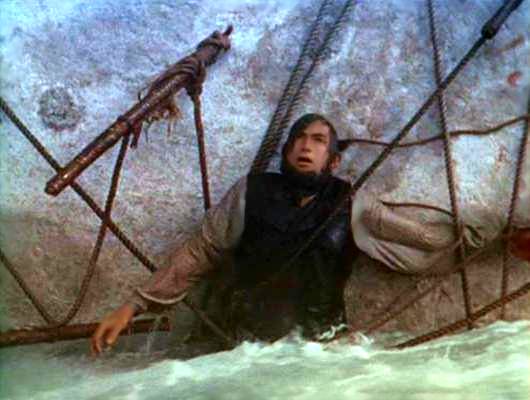
* Or, you know, a small character that takes over a great movie, one I can't think of right now
Related Articles
home about contact us featured writings years in review film productions
All rights reserved The Pink Smoke © 2010